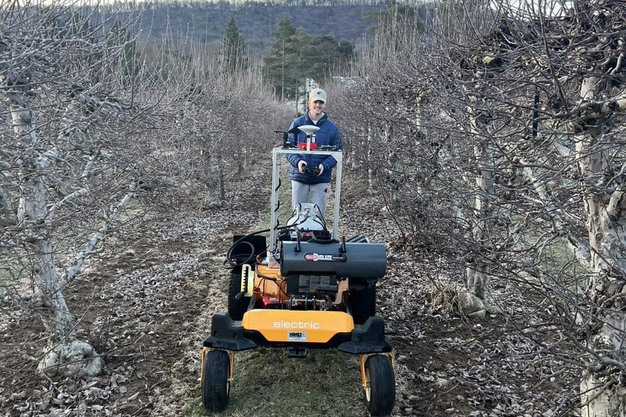Spring frosts can have devastating effects on apple production, and a warming climate may be causing trees to blossom early, making them more susceptible to the damaging effects of extreme cold events. Growers' attempts to prevent the flowers from freezing by attempting to heat the canopies of their orchards largely have been inefficient.
To deal with the worsening problem, Penn State researchers devised a frost protection cyber-physical system, which makes heating decisions based on real-time temperature and wind-direction data. The system consists of a temperature-sensing device, a propane-fueled heater that adjusts its direction and angle automatically depending on wind direction, and an unmanned ground vehicle to move the heating system through an apple orchard.
Recently published in Computers and Electronics in Agriculture, the findings show that the cyber-physical frost-protection system greatly reduced damage to apple tree buds in two tests conducted in low temperatures. Compared to similar unprotected orchard sections nearby, deploying the cyber-physical frost-protection system in one test more than doubled the time the test-area canopy was protected, and nearly tripled the time in another.
Applying heat is one of the most effective methods to prevent apple flower bud damage, however growers struggle to determine when and where to apply heat in their orchards, according to researcher Long He, assistant professor of agricultural and biological engineering, who is corresponding author on the study. They often don't have an available labor force to accomplish the heating, he said, leading to either diminished apple crops or energy waste.
Growers know that apple flower buds can be damaged when the temperature falls below 30 degrees Fahrenheit, but they are deterred from taking active protective actions because wind can make heating efforts ineffective.
For more information: psu.edu

